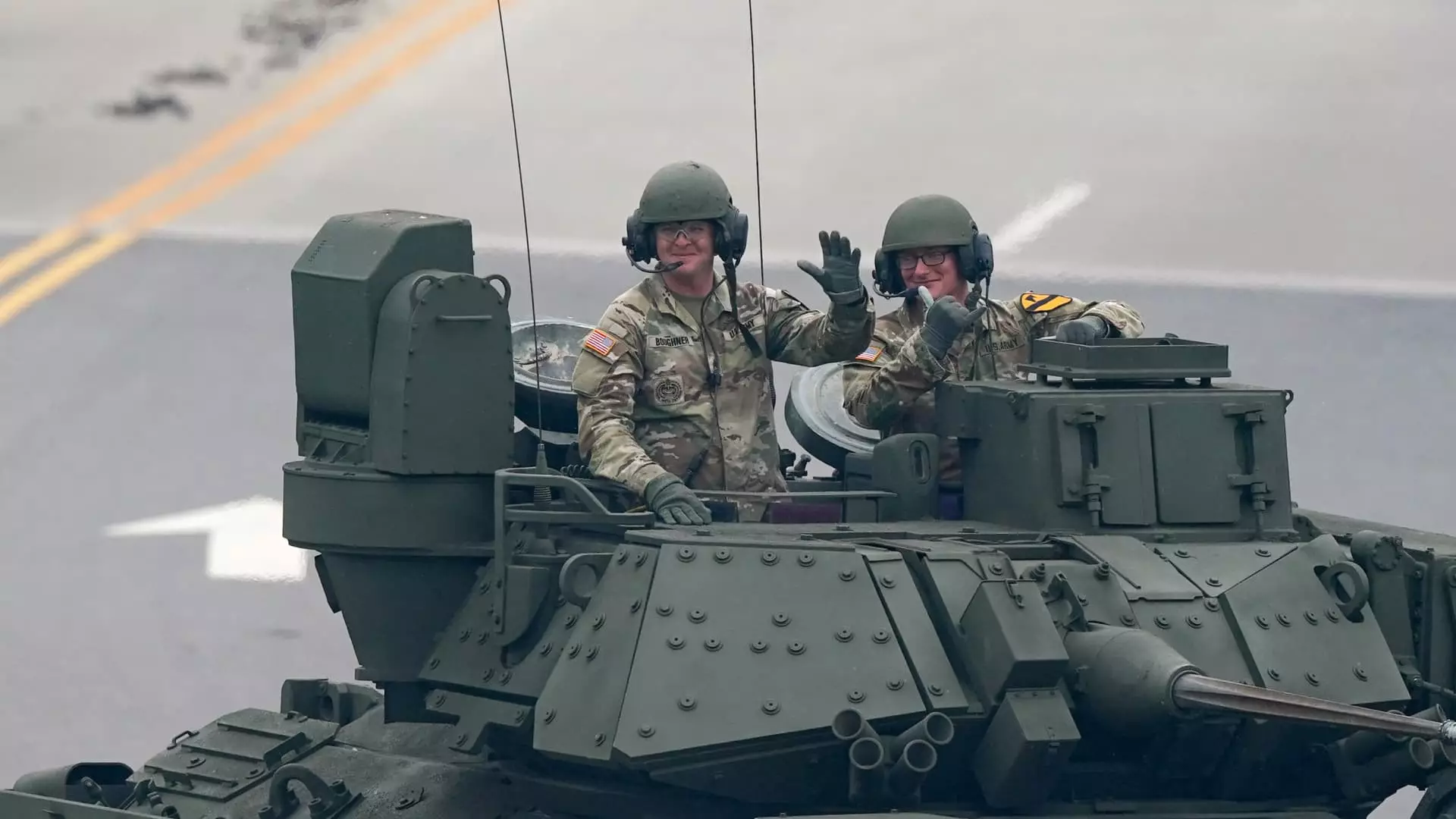In a striking turn of events at the NATO summit in The Hague, Europe’s defense sector has experienced a remarkable rally, underscoring a disconcerting trend towards increased military spending across the continent. As 32 member states unanimously agree to elevate their defense spending target to a staggering 5% of gross domestic product (GDP), one can’t help but question the underlying motivations behind such a significant escalation. The Stoxx Aerospace and Defense index has already soared nearly 50% year-to-date, and companies like Babcock International and Renk have posted double-digit gains.
While the stock market often revels in such booms, it is imperative to critically examine the social and economic implications of this exuberance. Are we witnessing a genuine commitment to ensuring national security, or merely a capitulation to the arms race mentality fostered by populist libertarians and nationalists alike? The casual observer may cheer for the economic indicators, but those critically aware must question the toll that this relentless military uptick could take on public welfare.
The Broader Economic Landscape
European markets are generally trading upward, and this economic rebound might appear favorable at face value. However, it comes at a crucial moral crossroads. The pan-European Stoxx 600 index, currently up by about 0.3%, paints an enticing picture, with major bourses in the green. Yet, one should ponder how diverting vital resources towards defense affects pressing social issues—education, healthcare, and infrastructure. Political leaders have been quick to respond positively to stock performance, yet this should serve as a stark reminder to the citizens that a more militarized Europe might translate to increased neglect of public welfare.
A booming defense sector often goes hand in hand with a sense of fear and opposition to diplomacy. We must ask ourselves, why is militarization being celebrated instead of diplomatic negotiations that tend to bring people together and solve conflicts? In a world where we are inundated with both information and misinformation, the growing trend of prioritizing defense over dialogue should raise alarm bells.
The Implications of Inflation
The backdrop of this stock market activity includes more troubling elements, including inflationary pressures that have led the U.S. Federal Reserve to seize a cautious approach in its monetary policy. Jerome Powell’s assurances of steady rates sound pragmatic, but as nations pivot toward aggressive military budgets, the cyclical relationship between economic stability and defense expenditure becomes increasingly tenuous. Financing a war machine demands fiscal responsibility—responsibility that could otherwise alleviate the burdens borne by the average citizen due to rising prices and stagnant wages.
The fragility of peace between Iran and Israel highlights this precarious balance. The ongoing ceasefire may hold for now, but tension bubbles beneath the surface, fueled by military posturing from both sides. Europe, too, must grapple with this geopolitical uncertainty and the associated economic costs. Betting on arms manufacturing offers a Faustian bargain—securing perhaps short-term financial boosts while solidifying systemic instability.
A Call for Reassessment
Following the close of the NATO summit, member states will release a joint statement on defense spending, but the implications are far-reaching and potentially catastrophic. The historical precedent of diminished welfare programs in favor of escalating military budgets should not repeat itself. Instead, we ought to advocate for a reassessment of priorities, recognizing that strengthened social frameworks yield long-lasting stability infinitely more than stock market surges in defense contracts.
With heightened military expenditure, the onus of providing social justice is increasingly placed on the shoulders of an already burdened populace. Instead of climbing aboard the militarization bandwagon, global leaders should reflect on investing in diplomacy, conflict resolution, and sustainable development. Perhaps, rather than clinking glasses in celebration of booming stock prices, we should prioritize a fiscal policy that nurtures our society—investing in human capital rather than military might. In an age already riddled with divisions, that could spark a far more significant renaissance than what the current stock trends suggest.

Leave a Reply